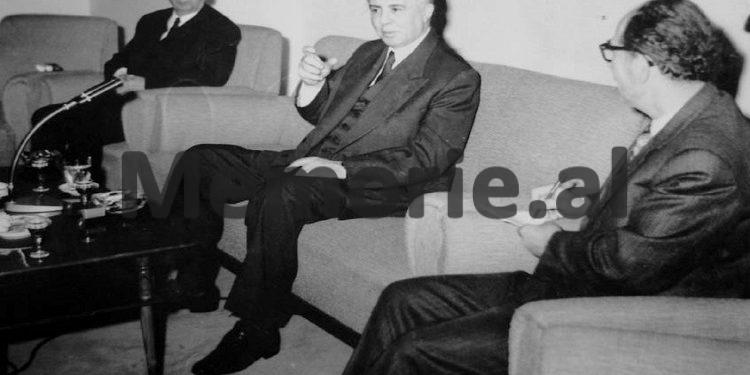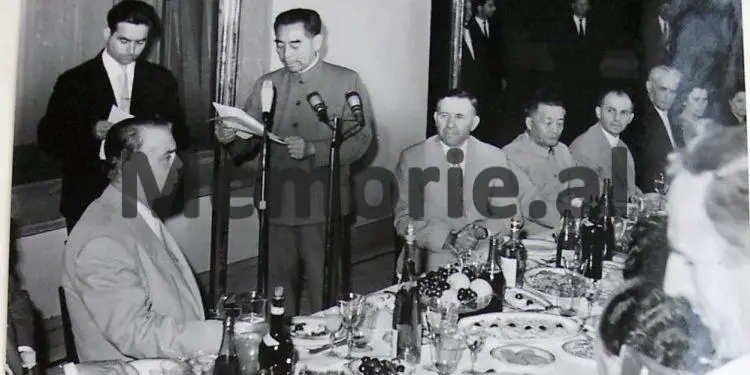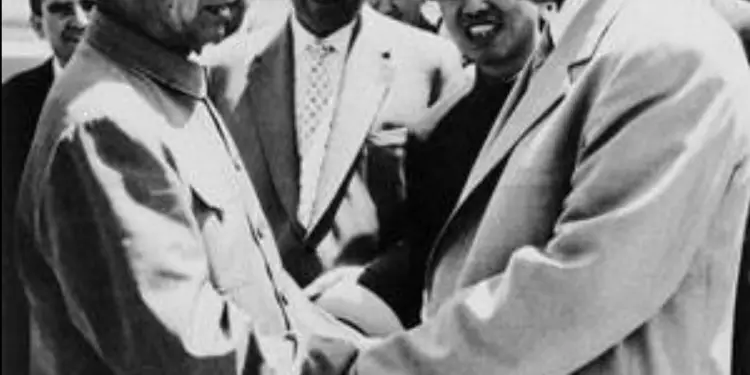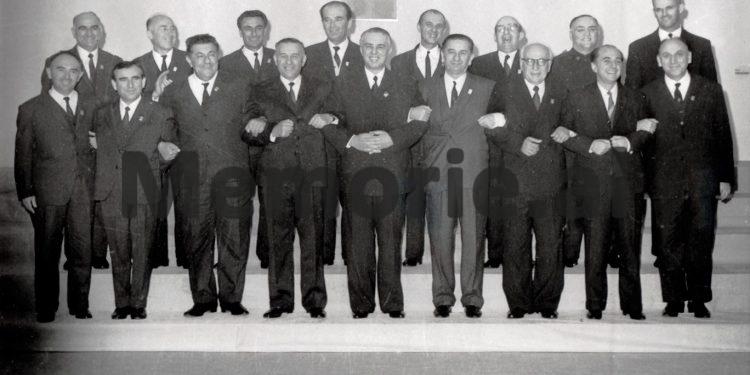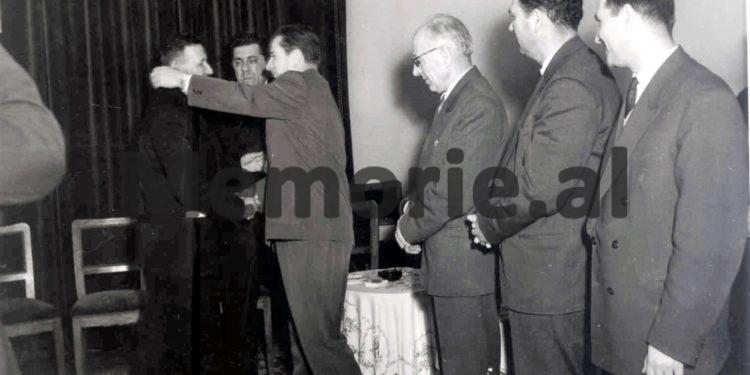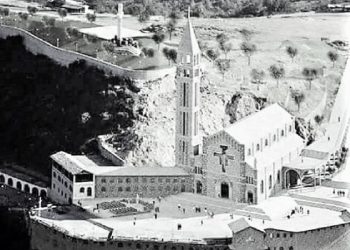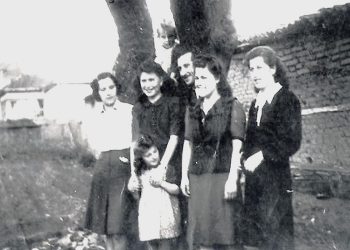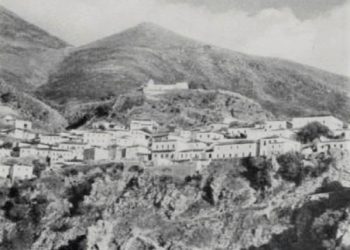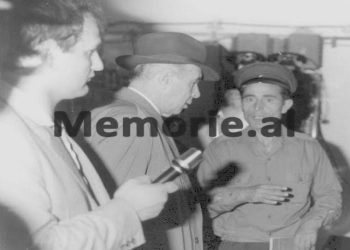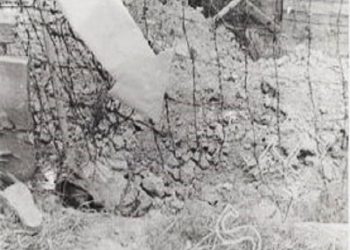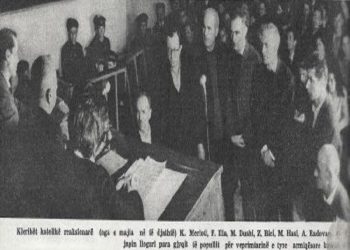Part Three
Rita Marko’s Report to Enver Hoxha and the Politburo, September 1969
Memorie.al / On September 2, 1969, at the age of 79, the Vietnamese communist leader, Ho Chi Minh, passed away. He was known as a communist revolutionary and statesman who held the position of Prime Minister of Vietnam in the years 1945–1955, and from 1955 until 1969, served as President of the Democratic Republic of Vietnam (North Vietnam). In 1957, when he was President of Vietnam, Ho Chi Minh also visited Albania, traveling to several districts of the country. Following the breakdown of official relations with the Soviet Union in 1961, the communist regime in Tirana, led by Enver Hoxha, and considered Vietnam one of its friendliest and closest states, after the People’s Republic of China. Based on this, in September 1969, official Tirana sent a delegation to Vietnam to attend the funeral ceremonies of Ho Chi Minh, which was led by the member of the Political Bureau of the Central Committee of the Party of Labour of Albania (PPSH), Rita Marko, who at the time also held the post of Deputy Chairman of the Presidium of the People’s Assembly of the People’s Republic of Albania, and was also the First Secretary of the Party Committee of the Durrës district. After returning from Vietnam and the People’s Republic of China, where the delegation made a friendly visit, as dictated by the “norms and rules of the Party,” Rita Marko reported to Enver Hoxha and the other “comrades” of the leadership regarding those visits, which is reflected in the relevant minutes bearing the “Top Secret” seal, which Memorie.al is publishing in full across several issues, according to the documents with the minutes of this meeting, located in the Central State Archive, fund of the former Central Committee of the PPSH.
TOP SECRET
Notes taken during the verbal report given to the First Secretary of the Central Committee of the PPSH, Comrade Enver Hoxha, on September 19, 1969, by Comrade Rita Marko, head of the delegation that visited the Democratic Republic of Vietnam to participate in the funeral of President Ho Chi Minh, as well as the visit to the People’s Republic of China.
Comrade Enver invited the following comrades to the meeting to hear Comrade Rita Marko: Mehmet Shehu, Haki Toska, Hysni Kapo, Ramiz Alia, and Xhafer Spahiu. Comrade Enver immediately gave the floor to Comrade Rita Marko.
Continues from the previous issue
COMRADE RITA MARKO: After we finished eating, around 9:30 or 10:00 PM, Zhou Enlai got up and invited us to go for talks. He suggested bringing whoever we wanted from the delegation members and brought along all the Chinese who were at dinner. The conversation started about issues other than those discussed at dinner, such as the issue of the delegation to be sent to their holiday. “We welcome the delegation you will send us on the occasion of the 20th anniversary of the proclamation of our Republic,” he said.
“Please tell Comrade Enver and the other Albanian comrades to send us a delegation; we have also made this proposal through the ambassador. Today we have prepared a letter in which we express our desire to also invite the comrade from the Marxist-Leninist Communist Party of Poland, so please create the opportunity for him to come to China. I don’t know if he is in Albania or not,” said Zhou Enlai. “I don’t know,” I said, “but I will notify the leadership.”
Then, he started the conversation by saying that; “after you participated in Ho Chi Minh’s funeral ceremony in Hanoi, since you are our friends, you came to us in Beijing, so we want to inform you that Kosygin passed through here and we had a meeting with him at the airport. Of course, Comrade Enver and the other Albanian leading comrades will ask you about this meeting, so I want to briefly inform you about this matter.
Four and a half years ago, after Kosygin went to Hanoi, he passed through Beijing on his way to the Soviet Union and also met with Chairman Mao, who told him then that we would continue polemics with you for another 10,000 years, but we will maintain state relations.
On that occasion, we talked to him about trade issues, but later, our relations became increasingly strained, not only in trade issues but in all other aspects, reaching up to the current provocations.
The current relations between our two countries are so strained that they have reached a very low point. This issue is known to both your former ambassador, Vasil Nathanaili, and the new one. Our trade contradictions with the Soviet Union have also broken down.
Thus, in 1969, we did not conclude any trade agreement with the Soviets, with the exception of some very small, insignificant agreement. Our two countries are very critical of each other in the press and in the diplomatic arena. When we name the Soviet revisionists by name in speeches, their diplomats leave; when we don’t mention them, they don’t leave.
(Rita Marko) “That’s what we want,” I intervened, “for the revisionists to leave our countries, so that we keep them clean.”
Zhou Enlai then explained that earlier there were no incidents on the border, but now there are major border incidents, such as in Zhenbao, Xinjiang, etc., where there have been armed clashes. “By encouraging these conflicts,” he continued, “the Soviets are transferring large military forces to the Far East. Even though the border delegations of both sides meet from time to time, the problems are not resolved, and our governments continue to exchange reciprocal notes without reaching any result.
The Soviets had made a proposal to have talks with us, but it was not complete. We made a clear and concrete proposal on June 13. After that, they sent us a document, which we did not respond to, because Brezhnev and then Gomułka praised American imperialism in their speeches, which were published at that time.
Assessing the created situation, we set ourselves the task of making political and military preparations and have openly said that we will fight until the end against all enemies.” It was at this moment that Zhou Enlai said that Lin Biao’s report to the Congress stated that the Soviets had requested by phone to hold talks with us. This was also told to us by Kang Sheng, who added that the telephone operator, on his own initiative, did not allow the call to go through.
“We criticized the telephone operator, who should not have acted on his own initiative,” Kang Sheng told us, “(while) he should have reported to the leadership, but, on the other hand, we appreciated him for the revolutionary spirit and the hatred he had expressed, which reflects the hatred of all our masses towards them.”
Then, Zhou Enlai said that they would respond to their note. He added: “Considering their whole path, we think there is nothing to talk about with them, that in the current situation, the Soviet revisionists are seeking contacts with us.”
“While I was in Hanoi,” continued Zhou Enlai, “we avoided contacts with them, but as soon as the Soviets learned that I would be going to Vietnam to attend Ho Chi Minh’s funeral, they rushed to take advantage of this opportunity, which is why they immediately suspended talks with the Japanese Foreign Minister and sent their delegation, led by Kosygin, to meet me in Hanoi.
Since our delegation returned quickly to Beijing, the Soviet delegation stayed in India, where it held talks with the government officials there. The Soviet delegation arrived in Hanoi on September 6, while the Albanian delegation, I believe, arrived on September 8. There, based on your proposal, Li Xiannian, considering your opinion, did not respond to Kosygin’s greeting.”
(Rita Marko): When I said this was the right position, Zhou Enlai did not speak. On the afternoon of September 9, the Vietnamese Foreign Minister went to Li Xiannian and informed the Chinese delegation of the Soviet request for a Sino-Soviet meeting at the prime ministerial level. “When you left for Beijing,” Zhou Enlai told us, “we had just reviewed the Soviet proposal and, after talking with Mao Zedong and Lin Biao, we replied through the Vietnamese that we could have a meeting at the Beijing airport.
But when our answer arrived in Hanoi, Kosygin had left Vietnam (and) he received our answer late. The Vietnamese informed us that the Soviets were also ready for him to come from Irkutsk, but they proposed that it be publicly announced as if he had come from Hanoi. With the instructions of Chairman Mao, we accepted the meeting with Kosygin and talked with him for three and a half hours, and after we ate lunch, he left. There is a reason for their haste in holding this meeting.”
Zhou said: “We wanted to know why they requested it so urgently. I want to emphasize,” He continued, “that the talks had nothing to do with the party; they were talks along the state channel. In this meeting, the Soviets requested that the most urgent problems between us be solved.
Before talking, we put forward two important conditions for the Soviets: first, that we will continue theoretical polemics against them, but this should not hinder relations between our two sides; secondly, regarding the rumors circulating in the Soviet Union that you will bomb our atomic bases, we warn you and want you to know that, in such a case, you will have entered into war with us. And for this, we are mobilizing the people for war.
The whole world is saying now that the Sino-Soviet border is a very tense situation and that a war between the Soviets and us is about to start. These words are circulating due to news transmitted by the Soviet Union itself and American and Japanese news agencies. However,” said Zhou Enlai, “the situation on the border is not as tense as it appears to be. We told Kosygin that we are ready to discuss the resolution of the border problems.
But because the talks might take a long time, before this problem is finally solved, it would be good to find a temporary solution, as we have done with India and other border countries. For this, we propose that the status quo on the border be maintained, armed conflicts between the two sides be avoided, that they do not fire on each other, that the airspace is not violated, that water navigation is not impeded, and that the troops of both sides.
The parties must withdraw from the regions that need to be discussed. We suggest to them that the residents of some border regions be allowed to enter the territory according to their needs and pastures. These were our proposals for the temporary solution of the border problem,” said Zhou Enlai at the end of this topic.
“Kosygin was generally in agreement with our proposals and promised to report everything to the Politburo. We also told him that we would report to Chairman Mao Zedong. By taking these measures, we think we will reduce the tension that exists on the border between our two countries,” he added.
“Then,” he continued, “we talked with Kosygin about issues related to trade and railway and air transport and told him that, on our part, we will respect the agreements. We also discussed the mutual exchange of ambassadors. These were the main topics of the conversation we had.”
“In our opinion,” said Zhou Enlai, “the Soviets will not change the plan of deploying their armed forces near our border, so we must prepare and continue to mobilize the masses for war, because they might try to deceive us, meaning a surprise attack against them, a part cannot be excluded.
We know that in the leadership of the Soviet Union, there are also adventurous people, people who make wrong calculations. By attacking first, they think they have the advantage and will win. The Americans have also said the same thing. There is no unity within the Soviet leadership,” he added. “In the chaotic situation they have entered, they might make a wrong decision. This forces us to be constantly vigilant. However, there is also the possibility that the tension will decrease.
If this is the case, even for a short time, we think it will be beneficial for us. And this can be achieved,” he said, “because the Soviets preach so much about peace, (and) the Soviet people do not support war. The reduction of tension between our two countries,” continued Zhou Enlai, “will influence the Soviet revisionists to demobilize their forces. These situations are in our favor because they help us by giving us time. What do you think about these issues?
(Rita Marko): “This is how you judge these issues,” I replied, “we said what we think, which is not in line with you.”
COMRADE ENVER HOXHA: It would be great if the Americans were also deceived in this way, to demobilize, as the Chinese naively think, so that we gain time, mobilize, and strengthen ourselves. Is it possible to disarm the imperialists and revisionists?
COMRADE RITA MARKO: “Before the Soviet delegation left for Hanoi,” Zhou Enlai told us, “the Soviets had requested that the plane that would transport the delegation to Vietnam pass through China – a large 700-seater plane, which would also transport supplies for Ho Chi Minh’s embalming, but we did not allow it, requesting as a condition that there also be a Chinese pilot and radio operator. They did not agree to this, so the plane passed through India, etc.”
When Zhou Enlai expressed the opinion that if the Soviets reach an agreement with the Chinese, they will demobilize, that they are for peace, etc., I emphasized once again what the Soviet revisionists are, that we know them very well. “Yes, they have disagreements within the leadership,” said Zhou Enlai.
“Even better,” I intervened again, “we must work to increase these disagreements, to further divide them and benefit from this situation, so I think this meeting was wrong and served them.” He did not like this.
However, he took the floor again and began to elaborate on this issue, explaining that the first reason why the Soviets were forced to hold this meeting is so that they can put pressure on the United States, which is seeking major concessions from the Soviet Union.
He then addressed the issue of West Berlin, for which nothing has been done and will not be done; spoke about the Paris conference, about Vietnam, where the talks are not going as the Soviets want, about Nixon’s visit to Romania and not to the Soviet Union, etc.
All these (issues) have preoccupied the Soviet Union a lot, and for this reason, with this meeting, the Soviets want to achieve something significant before going to the UN on the eve of the General Assembly.
“The second reason,” continued Zhou Enlai, “is that there are great internal difficulties in the Soviet Union. It keeps about one million soldiers along the Chinese border and in Mongolia. The forces of the Warsaw Pact are supported by the governments of the respective countries, while the supply of the Soviet army with food, clothing, and so on, in the border area with China, is very difficult.
The same situation applies to housing. There are two paths they must choose: either to go to war against us or to ease the tension. Winter is now approaching, (and) winter is very harsh in the place where they have their forces. They only have seven divisions in 1the barracks in Mongolia. Plus, they can place the large machinery they have, neither in the barracks nor in tents.”
“The third reason,” continued Zhou Enlai, “is that there are foolish people in the leadership of the Soviet Union. Within the Soviet leadership, there are different opinions on the issue of war; some are for war, some for peace. This was also visible in Kosygin’s facial expressions,” said Zhou Enlai. “Kosygin himself is for easing the tension, because being a great economist, he is aware of the severe consequences of war.
(Rita Marko): “Kosygin is a despicable wolf,” I interrupted, “before he was an economist, (and) he is first and foremost a political man, because for economic issues, there are plenty of people who can help him; he is a revisionist ideological leader, ready to do anything, so it is no coincidence that they constantly put him on stage.”
Zhou Enlai then said that; “the Moscow meeting proved that the Soviet Union had lost the authority it once had and could not wield the conductor’s baton as before, that many other parties condemn (the Soviet Union) for the steps it is taking regarding the increase of tension on the border with us. Only those parties that receive material aid from the Soviet Union now support it in its adventures against China.” Memorie.al




